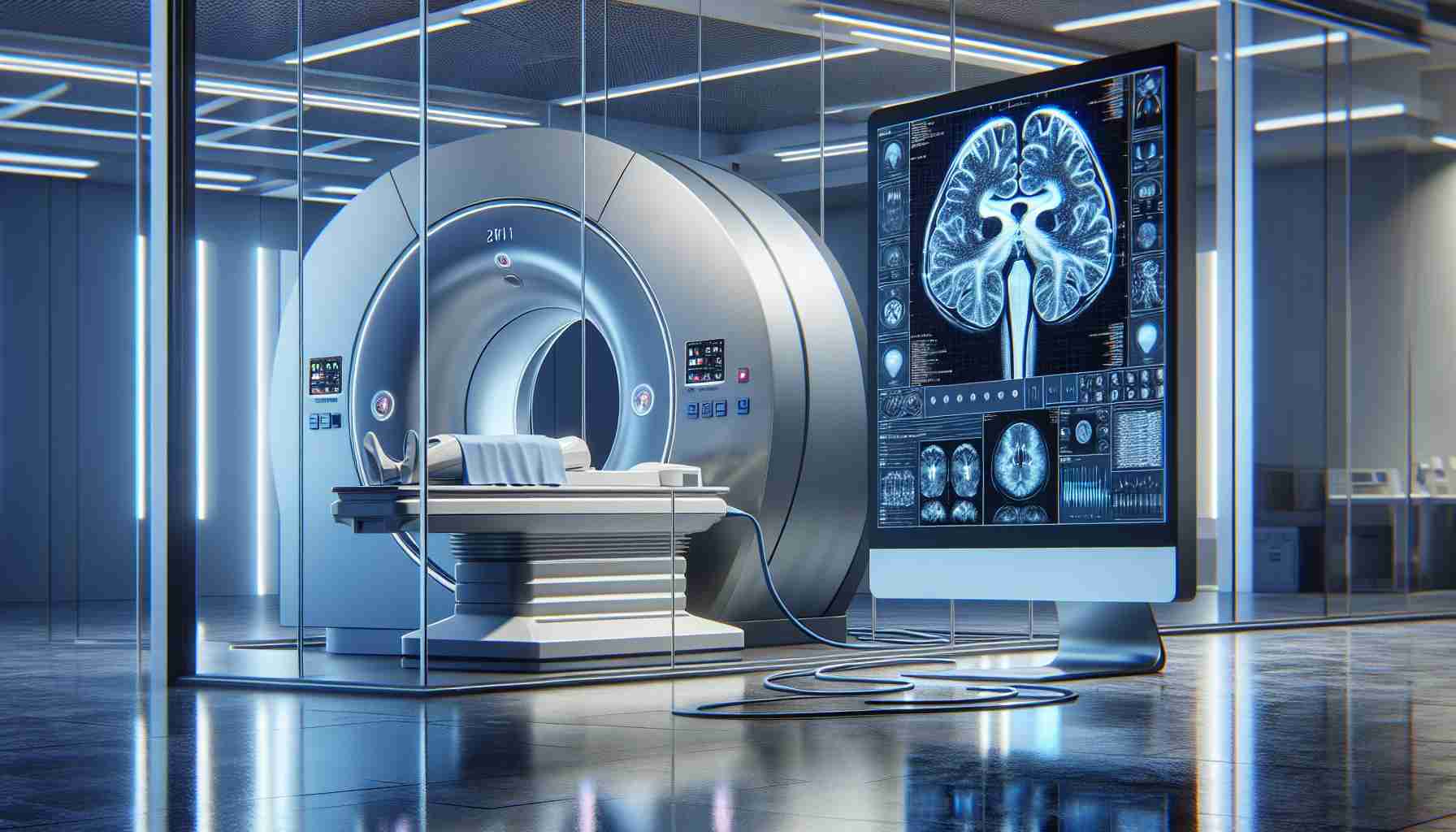A groundbreaking development in medical imaging technology is on the horizon, thanks to a dedicated team of artificial intelligence experts. Researchers have found a way to manufacture an MRI device that promises affordability without sacrificing quality. A revolutionary new machine, devised from accessible market components and fortified with AI, has been presented at a nominal price of $22,000. This cost-effective device stands in sharp contrast with the current models that hover over the one million dollar mark.
Key studies reveal the new AI-integrated MRI machine’s performance parallels its traditional counterpart. Engineered by a team from the University of Hong Kong, led by researcher Yugiao Zhao, this innovation could reshape the landscape of life-saving imaging equipment. Addressing the issue of variances in obtained images, Zhao and her team implemented an AI algorithm within the device’s system. This algorithm utilizes an extensive database composed of high-resolution pictures of human organs, ensuring the capture of precise imaging data.
The application of artificial intelligence in this new device marks a significant step towards meeting global MRI needs. As Yugiao Zhao emphasizes, the advancement contributes to bridging the gap, particularly in regions where such high-end medical devices are scarce and often unattainable. The integration of AI paves the way for widespread access to essential diagnostic tools, which are critical in saving lives and improving healthcare services around the world.
Understanding the Significance of Affordable MRI Technology
MRI (Magnetic Resonance Imaging) technology is a cornerstone of modern medical diagnostics, offering clear images of soft tissues, which are critical for diagnosing a multitude of conditions from tumors to torn ligaments. Traditional high-cost MRI machines can be a significant burden on healthcare systems, especially in developing countries. By introducing low-cost alternatives powered by AI, there is potential for more universal access to this vital diagnostic tool.
Most Important Questions and Answers
How does AI integration in MRI machines improve image quality?
AI algorithms can enhance low-resolution images, differentiate between normal and abnormal tissues, and may reduce the need for re-scans, thereby saving time and resources.
What are the potential challenges in adopting low-cost MRI technology?
Challenges include ensuring the reliability and accuracy of AI algorithms, obtaining regulatory approvals, and convincing medical professionals to adopt new technology.
Are there controversies surrounding AI in medical imaging?
Potential controversies include concerns over data privacy, potential biases in AI algorithms, and the need to maintain human oversight in diagnosing conditions.
Advantages and Disadvantages of AI-Enhanced Low-Cost MRI Technology
Advantages:
– Affordability: Low-cost MRI machines could be a game-changer for healthcare facilities constrained by budgets.
– Accessibility: Increased access to MRI technology allows for early and accurate diagnosis of conditions, improving patient outcomes, especially in underserved areas.
– Efficiency: AI algorithms can speed up the imaging process and analysis, potentially reducing the time to diagnosis.
Disadvantages:
– Reliability: There may be questions around the reliability and diagnostic accuracy of AI-enhanced images compared to traditional high-cost machines.
– Regulatory Hurdles: New medical devices, particularly those incorporating AI, must undergo rigorous testing and approval processes, which can be lengthy and costly.
– Technology Acceptance: There might be resistance from medical professionals who are accustomed to traditional machines and skeptical of new technology’s effectiveness.
For those interested in further reading about MRI technology and AI advancements, explore these links:
– National Institute of Biomedical Imaging and Bioengineering
– Radiological Society of North America
– American Association of Physicists in Medicine
Please note that while the URLs provided are valid at the time of my knowledge cutoff, web content and addresses are subject to change. Always verify URLs independently to ensure they remain accurate and relevant.

